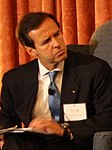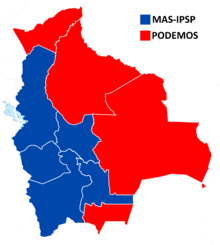
The politics of Bolivia takes place in a framework of a presidential representative democratic republic, whereby the president is head of state, head of government and head of a diverse multi-party system. Executive power is exercised by the government. Legislative power is vested in both the government and the two chambers of parliament. Both the Judiciary and the electoral branch are independent of the executive and the legislature. After the 2014 election, 53.1% of the seats in national parliament were held by women, a higher proportion of women than that of the population.

The Bolivian gas conflict was a social confrontation in Bolivia reaching its peak in 2003, centering on the exploitation of the country's vast natural gas reserves. The expression can be extended to refer to the general conflict in Bolivia over the exploitation of gas resources, thus including the 2005 protests and the election of Evo Morales as president. Before these protests, Bolivia had seen a series of similar earlier protests during the Cochabamba protests of 2000, which were against the privatization of the municipal water supply.

The Revolutionary Nationalist Movement is a Bolivian political party and the leading force behind the Bolivian National Revolution. It influenced much of the country's history since 1941.

A referendum on natural gas reserves was held in Bolivia on 18 July 2004. Voters were asked five questions on the government's policy on natural gas, with all five approved.

Elections in Bolivia gives information on elections and election results in Bolivia.

The Plurinational Legislative Assembly is the national legislature of Bolivia, placed in La Paz, the country's seat of government.

The Movement Without Fear is a progressive political party in Bolivia. MSM was founded on March 1, 1999.

Eduardo Rodríguez Veltzé is a Bolivian judge. During the 2005 political crisis in Bolivia, he briefly assumed the Presidency. Prior to that, he was the Chief Justice of the Supreme Court.

The Movement for Socialism–Political Instrument for the Sovereignty of the Peoples, alternately referred to as "Movement Toward Socialism" or "Movement to Socialism", is a Bolivian left-wing socialist political movement led by Evo Morales, founded in 1998. Its followers are known as masistas.
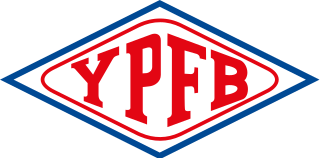
Yacimientos Petrolíferos Fiscales Bolivianos (YPFB) is a Bolivian state-owned enterprise dedicated to the exploration, exploitation, refining, industrialization, distribution and commercialization of oil, natural gas and derived products. It was created on December 21, 1936 under a government decree during the presidency of David Toro. YPFB is one of the biggest corporations in Bolivia.

The current Constitution of Bolivia came into effect on February 7, 2009 when it was promulgated by President Evo Morales. after being approved in a referendum with 90.24% participation. The referendum was held on January 25, 2009, and the constitution was approved by 61.43% of voters.
After the fall of Tiwanaku empire, the many Aymara Lake Titicaca were conquered by the Inca empire. Prior to the Spanish conquest, the Andean province of Qullasuyu was a part of the Inca empire, while the northern and eastern lowlands were inhabited by independent nomadic tribes. Spanish conquistadors, arriving from Cuzco and Asunción took control of the region in the 16th century. During most of the Spanish colonial rule, Bolivia was known as Upper Peru and administered by the Royal Audiencia of Charcas. After the 1st call for independence in 1809, 16 years of war followed before the establishment of the Bolivian Republic, named for the Liberator Simón Bolívar, on August 6, 1825. Since then Bolivia has endured regular periods of political and economic instability, including the loss of various provinces to its neighbors, such as Acre, parts of the Gran Chaco and its Pacific coast, making it a land-locked country.
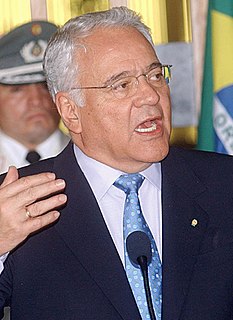
General elections were held in Bolivia on 30 June 2002. As no candidate for the presidency received over 50% of the vote, the National Congress was required to elect a President. Gonzalo Sánchez de Lozada was elected with 84 votes to the 43 received by Evo Morales.
The history of Bolivia since 1982 begins with the restorations of democracy after the rule of the military junta of 1982. Evo Morales has held the presidency since 2006. A new constitution was enacted in 2009. Bolivia's population has roughly doubled over this period, from 5 million in 1980 to 10 million as of 2012.
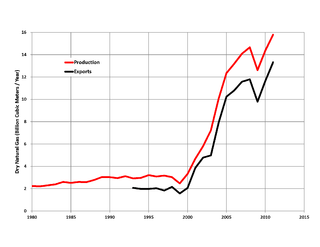
Natural gas in Bolivia is one of the nation's main energy sources and export products. Bolivia's proved natural gas reserves are estimated to be 24,800,000,000,000(ft³). Most of these reserves are located in the eastern region of the country. The major export pipelines in Bolivia transport the gas to Argentina and Brazil.
The first Bolivian judicial election was held on 16 October 2011. The national vote was held to elect magistrates to serve on the Supreme Tribunal of Justice, the Plurinational Constitutional Tribunal, the Agro-environmental Tribunal and members of the Council of the Judiciary. It was originally scheduled to be held on 5 December 2010, but officials of the National Electoral Court and of the MAS majority in the Plurinational Legislative Assembly delayed it. The vote will be the first time that a Latin American country directly elects its highest judicial officials.

The Bolivian general election, 2014 was Bolivia's second to take place under the country's 2009 constitution, and the first supervised by the Plurinational Electoral Organ, a newly created fourth branch of government. Incumbent President Evo Morales was re-elected for a third term.






